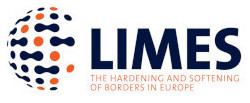Foreign Students and Graduates in European Border Regions
Research Focus and Methodology
Alina’s research focuses on the role of borders and geographical mobility in education. She investigates obstacles to cross-border mobility and studies their effects on the education and labor market outcomes of individuals. Her research delves into the institutional barriers associated with mobility for education and work, addressing topics such as social norms, labor market discrimination, information gaps, and immigration policies. In her research, Alina employs various quantitative methods, combining analyses of natural experiments and administrative data with applied theory and innovative survey evidence. She has established a close collaboration with the Federal Institute for Vocational Education and Training (BIBB) during her data collection efforts.
Relation to Borders
Research on the effects of borders and geographical mobility in education plays a crucial role in understanding how the presence of borders and the movement of individuals across them can affect educational opportunities. Borders, whether they are national, regional, local, or even cultural, can have significant implications for educational access, equity, and quality. They can serve as barriers that limit access to education for certain populations and, as a result, hinder their future labor outcomes. Alina's research examines how the presence of borders can create obstacles for students from marginalized communities and migrants. It also investigates the consequences of making borders more open for the local population. This research helps policymakers comprehend the obstacles that hinder these groups from pursuing education and guides the development of interventions to address these challenges.
Findings and Takeaways
Alina’s research yields several valuable insights. In her first article, she illuminates the significant role that geographic distance and regional borders play in shaping decisions regarding higher education. Facilitating access to local universities significantly improves individuals’ education, labor force participation, and job quality, especially among women. In Alina’s second paper, she delves into the intricate topic of ethnic discrimination within the vocational education and training system and the factors that can potentially mitigate the adverse effects of discrimination. The findings underscore the effectiveness of investing in social skills as a viable strategy to alleviate ethnic disparities, but also shed light on the fact that, for certain ethnic groups, the acquisition of skills alone cannot fully compensate for the unjust treatment they face. Her further research sheds light on the consequences of enhancing cross-border mobility and simplifying the process of attracting foreign workers by local companies. While these changes may initially seem advantageous, the investigation reveals potential adverse consequences for the supply of apprenticeship training opportunities by the affected companies.
Researcher: Alina Shirshikova (see profile)
Supervisors: Frank Cörvers, Raymond Montizaan, Harald Pfeifer (see profiles)
